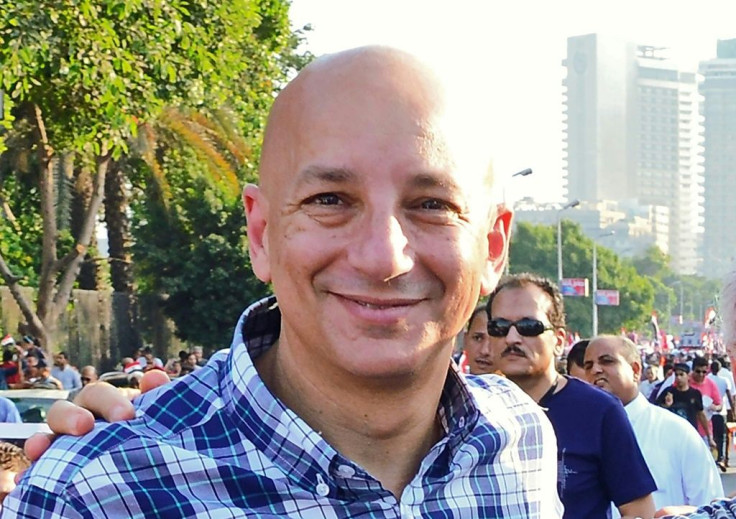A World Redrawn: Egypt Historian Khaled Fahmy Sees Rising Surveillance State
State surveillance is on the rise globally as governments such as Egypt's take advantage of the coronavirus pandemic, warns exiled historian and intellectual Khaled Fahmy.
Amid the COVID-19 crisis, states have used phone apps and other high-tech measures to monitor the spread of the disease, and in some cases deployed drones and troops to enforce strict curfews and lockdowns.
"How this will pan out, not only in Egypt but elsewhere ... in how governments will be able to monitor citizens' mobility and physical activities is very alarming," Fahmy told AFP in an online interview.
"The fear is: once granted, these rights given to the government will be very difficult to revoke once the crisis is over," said the Egyptian professor who has previously also taught at Princeton University.
Fahmy, 56, who has written extensively about plagues in the Middle East, also has a knack for finding himself in the midst of key historical moments, having moved back to Cairo months before the 2011 popular revolution, which he wholeheartedly embraced.
He has lived abroad since President Abdel Fattah al-Sisi took power in 2014 and has observed the global pandemic from the English city of Cambridge, where he is a professor of Middle East history.
He says his top concern now is that, as many countries start re-opening their borders, their citizens will be subjected to ever more rigorous forms of governmental scrutiny.
Egypt, the most populous Arab country, has recorded more than 17,000 cases and over 700 deaths.
Daily new infections number in the hundreds and are still on the rise, heightening the strain on an underfunded health care system.
Sisi this month ratified a slew of amendments to Egypt's emergency law, which rights group charge expanded "repressive powers".
They allow the president to close schools, suspend public sector work, ban public and private gatherings and quarantine inbound travellers.
Since the pandemic started, Egypt has also intensified an ongoing media crackdown and arrested several journalists, activists and even social media influencers.

"If you compare what is happening in Egypt now and the cholera epidemic of 1947, one big difference is how open the media was back then and how closed it is (now) in how they cover the epidemic," Fahmy noted.
"What we're facing now is much more dangerous," he warned, pointing to "a very big boost to a new kind of surveillance ... and serious breaches to privacy in the name of control of this pandemic".
The softly-spoken historian places the larger coronavirus pandemic within a chronology of diseases that ravaged Egypt through the ages.
"From the 14th to the beginning of the 19th century, the plague visited Egypt more than 190 times," he said. "On average, Egypt was inflicted by plagues once every nine years, so it was a fact of nature."
Fahmy said that when regimes have battled disease outbreaks, they have also tended to build up their powers to quarantine and control populations.
"Quarantines started being imposed in Egypt in a very strict way" after an 1831 cholera outbreak that spread from China to the Middle East, he said.
His landmark 1997 book "All the Pasha's Men" tells how obscure Ottoman governor Mehmet Ali became the ruler of modern Egypt by building up a powerful military which controlled all matters of state including public health.
Sisi, a former general, has once more boosted the military's role, including in fighting the virus.
Tanks have been deployed to sanitise major streets and squares, while the army has sold protective personal equipment at booths at affordable prices.
Fahmy was exiled for his outspoken views of the government, and he says the pandemic has added an extra layer of personal isolation.
"I am an Egyptian who cannot go back to Egypt for various reasons, and to then find myself in lockdown is another level" of exile, he said.
But he was quick to point out the far more dire plight of Egypt's around 60,000 political prisoners, saying that "in the wake of this pandemic, we now know and fear for their health and their lives.
"There is insult added to the injury of the fact that they are unjustly detained and now they are unjustly subjected to a very serious danger in their places of detention".
© Copyright AFP 2024. All rights reserved.





















